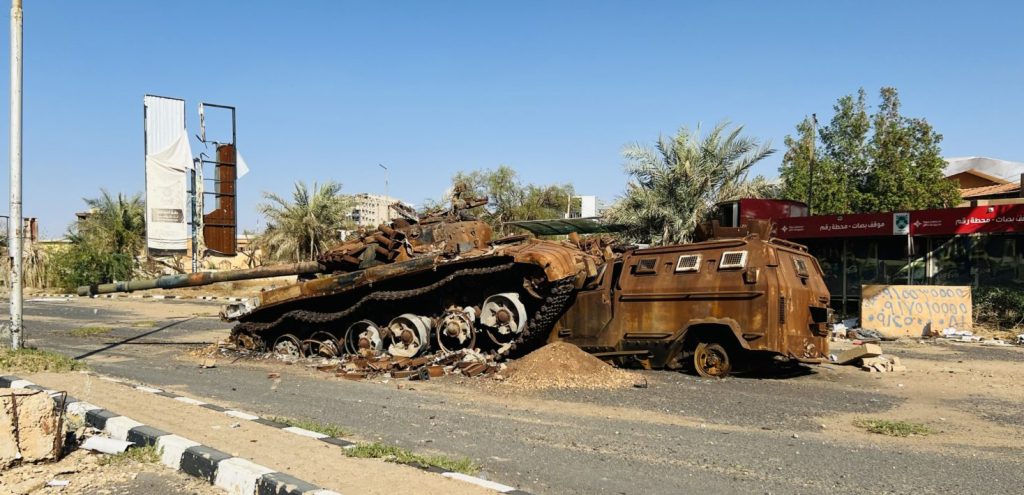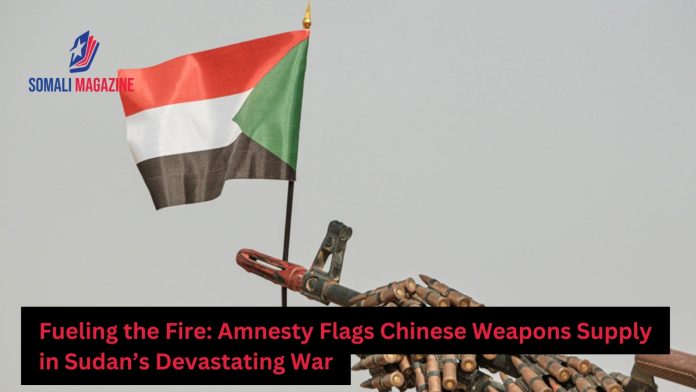Facebook Twitter (X) Instagram Somali Magazine - People's Magazine
The war in Sudan has reached new levels of devastation, with Amnesty International revealing that Chinese-made weapons are fueling the ongoing conflict between the Sudanese Armed Forces (SAF) and the paramilitary Rapid Support Forces (RSF). The latest findings expose how foreign arms continue to flow into Sudan despite international embargoes, exacerbating civilian suffering and prolonging the crisis.
Since the conflict erupted in April 2023, more than 16,650 people have been killed, and over 11 million have been displaced, making Sudan the largest internal displacement crisis globally. Amnesty’s investigation highlights how weapons from China, Russia, Serbia, Türkiye, the United Arab Emirates (UAE), and Yemen have been imported into Sudan and, in many cases, diverted into Darfur, where some of the worst atrocities have occurred.
The report details how advanced drone jammers, mortars, and anti-materiel rifles manufactured in China have been used by both sides of the conflict, including in Darfur. Amnesty’s research, which analyzed shipment records, open-source intelligence, and digital evidence, confirms that newly manufactured arms are reaching combatants accused of war crimes and human rights violations.
Despite a United Nations arms embargo on Darfur that has been in place for two decades, the flow of weapons into Sudan remains largely unchecked. Amnesty has called for an expansion of the embargo to cover the entire country, arguing that the current restrictions are ineffective. “The constant flow of arms into Sudan is continuing to cause civilian death and suffering on an immense scale,” said Deprose Muchena, Amnesty International’s Senior Director for Regional Human Rights Impact.

The humanitarian crisis in Sudan has worsened, with millions at immediate risk of famine. Amnesty’s findings underscore the urgent need for international action to halt arms transfers and hold suppliers accountable. The organization has urged the UN Security Council to strengthen enforcement mechanisms and impose stricter penalties on entities violating the embargo.
As the war drags on, Sudan’s civilian population continues to bear the brunt of the violence. Reports of indiscriminate strikes, targeted killings, and mass displacement paint a grim picture of the country’s future. The international community faces mounting pressure to intervene and prevent further escalation.
The revelations about Chinese weapons in Sudan add another layer to the geopolitical complexities surrounding the conflict. While China has maintained diplomatic ties with Sudan, its role in arms exports raises ethical concerns about its involvement in fueling instability. The Sudanese government and RSF have yet to respond to Amnesty’s findings, but the report is expected to spark renewed debate on foreign interference in Sudan’s war.
With no end in sight, the Sudanese people remain trapped in a cycle of violence, displacement, and humanitarian catastrophe. The global response to Amnesty’s report will be crucial in determining whether meaningful action is taken to curb the arms trade and bring relief to those suffering in Sudan.

